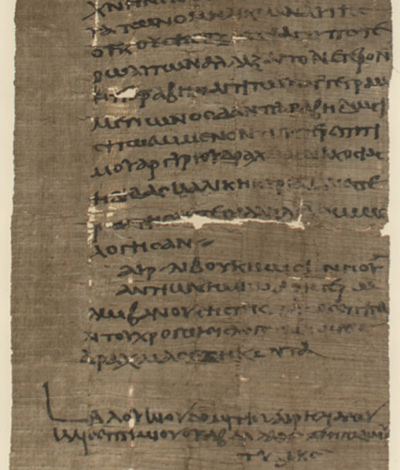
 |
 |
 |
 |
 |
 |
 |
 |
Texts from ancient Karanis
 |
|
Apprentice Contract
(January 20, 271 A.D.) Papyri from Karanis are housed in the University of Michigan’s Papyrology Room. The selection of texts assembled here has been organized and edited for use by a general audience. Texts and translations of more than 2,500 papyrus texts at the University of Michigan are online at http://www.lib.umich.edu/pap/. |
Roman Egyptians loved to keep records. Records of business transactions, taxation, litigation, legislation, and inventories are preserved in great numbers (sometimes in multiple copies). And in this society that was constantly on the move—whether from one town to another or from one end of the empire to the other—letter writing was essential to the maintenance of family ties, friendships, and business relationships.
Like the textiles from Karanis, the papyri from the site are typically fragmentary and difficult to interpret, but they still provide invaluable historical insights. Reading these ancient Roman texts is very much like eavesdropping: we come across incomplete sentences, which even when taken out of the context of the full conversation, offer up fascinating kernels of information. The texts presented here offer information about particular circumstances, practical considerations, and personal preferences for textile manufacture, acquisition, and use. So when you read through these texts, do not expect complete, clear, well-defined historical chapters. Expect instead provocative partial glimpses into the fabric of everyday life.